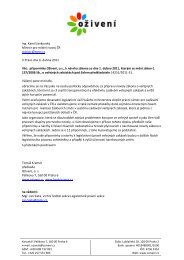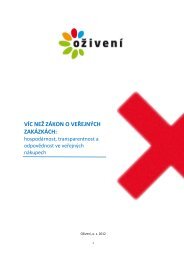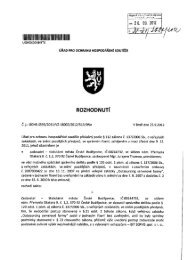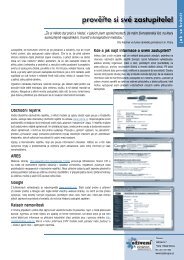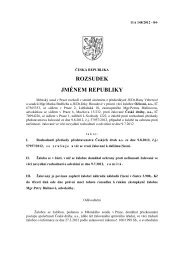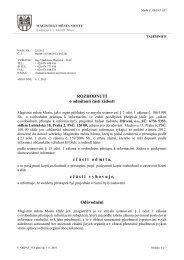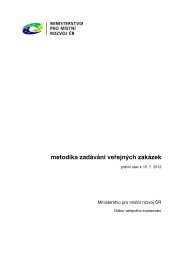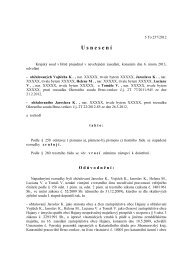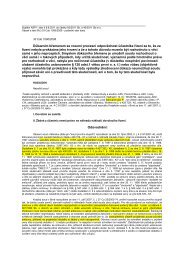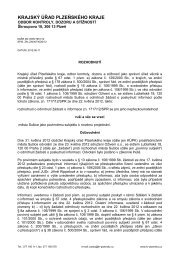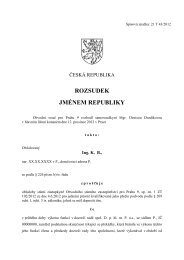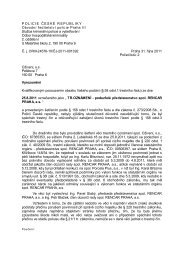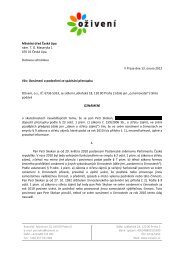Managing Conflict of Interest - Organisation for Economic Co ...
Managing Conflict of Interest - Organisation for Economic Co ...
Managing Conflict of Interest - Organisation for Economic Co ...
Create successful ePaper yourself
Turn your PDF publications into a flip-book with our unique Google optimized e-Paper software.
Implementation and En<strong>for</strong>cement Tools 93public. <strong><strong>Co</strong>nflict</strong> <strong>of</strong> interest, there<strong>for</strong>e, can be defined as a sui generiscase <strong>of</strong> corruption. Essentially, corruption cannot take place ifpublic <strong>of</strong>ficials per<strong>for</strong>m their duties without a quid pro quo condition(measured in terms <strong>of</strong> exchanged benefit to that <strong>of</strong>ficial) underlyingtheir actions or decisions.If public <strong>of</strong>ficials per<strong>for</strong>m their designated duties in exchange<strong>for</strong> their public wages and salaries, then no private gain has beenaccrued. 1 However, a conflict <strong>of</strong> interest exists when public <strong>of</strong>ficialsexpect to receive or derive other benefits based on how they per<strong>for</strong>mtheir designated duties—in connection with particular actionsor decisions. For example, if a customs <strong>of</strong>ficer seizes smuggledgoods as part <strong>of</strong> his <strong>of</strong>ficial duty and receives a reward from thegovernment, this reward is not an outcome <strong>of</strong> corruption, nor doesit involve corrupt practice. However, if the customs <strong>of</strong>ficer doesnot seize a certain smuggled good because it is not the type thatwill generate rewards but only attempts to seize smuggled goodswith rewards, then this customs <strong>of</strong>ficer has committed corruptionthrough conflict <strong>of</strong> interest.While there is no universal definition <strong>for</strong> conflict <strong>of</strong> interest, mostworking definitions in use globally make the connection betweencorruption and conflicts <strong>of</strong> interest, and vice versa.• Transparency International (TI) defines corruption as “an actinvolving behavior on the part <strong>of</strong> public <strong>of</strong>ficials in the publicsector, whether politicians or civil servants, in which theyimproperly and unlawfully enrich themselves, or those closeto them, by the misuse <strong>of</strong> the public power entrusted tothem.” 2 In short, corruption can be understood as the misuse<strong>of</strong> public power <strong>for</strong> private benefit.• In Singapore, where the lack <strong>of</strong> corruption in the public sectoris well known, the word “gratification” is used to stand<strong>for</strong> corruption in its Prevention <strong>of</strong> <strong>Co</strong>rruption Act, 1960:Gratification includes (a) money or any gift, loan, fee,reward, commission, valuable security or other property orinterest in property <strong>of</strong> any description, whether moveable1This is called “fiduciary duty,” or duty that is <strong>for</strong>mally expected from this <strong>of</strong>ficialposition.2Quoted in Briscoe and Hermans (2001), p. 5.ADB/OECD Anti-<strong>Co</strong>rruption Initiative <strong>for</strong> Asia and the Pacific



